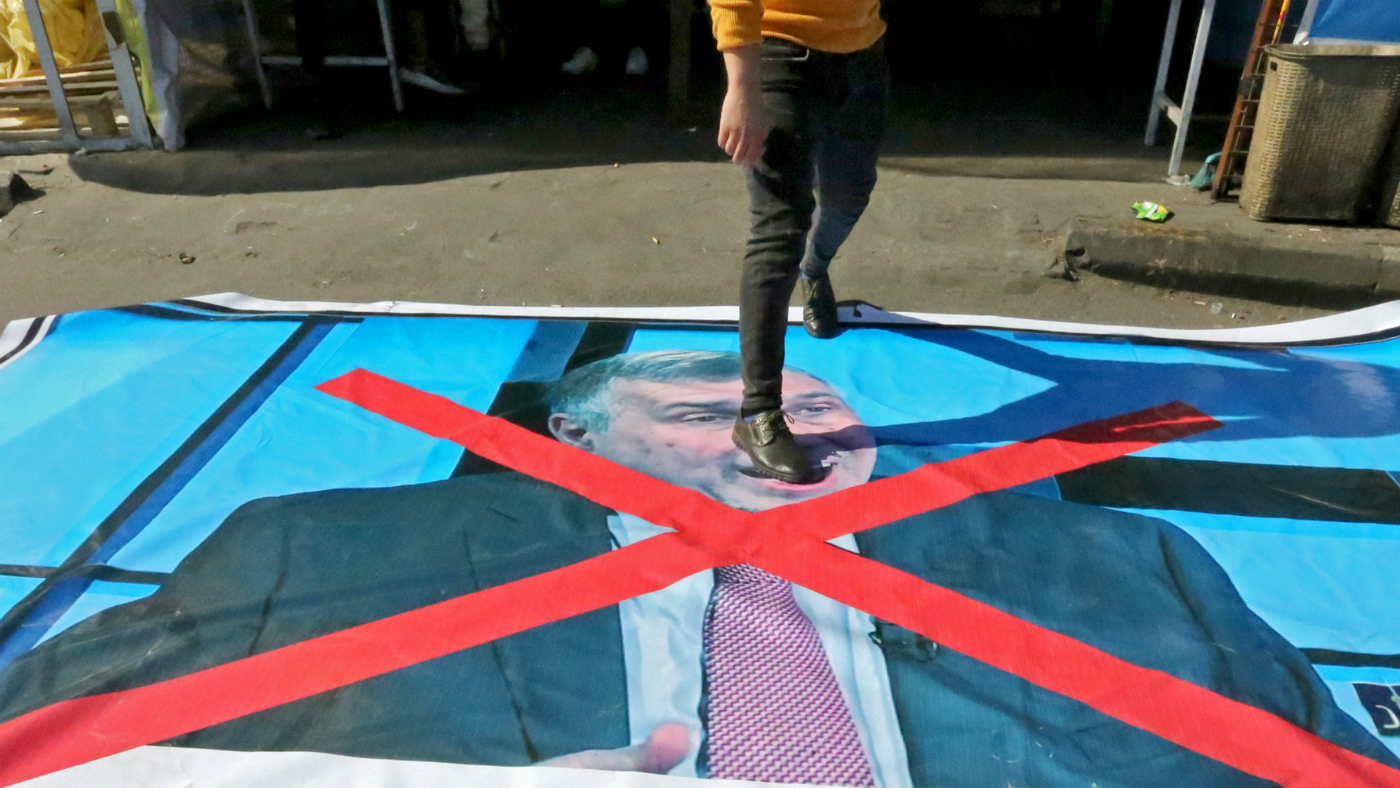Mohammed Allawi: can new PM save Iraq from crisis?
Nationwide protests intensify as activists call for overhaul of government following controversial appointment

A free daily email with the biggest news stories of the day – and the best features from TheWeek.com
You are now subscribed
Your newsletter sign-up was successful
Hundreds of activists have returned to the streets of cities across Iraq to protest against the nomination of former communications minister Mohammed Allawi as the country’s new prime minister.
Allawi was named by President Barham Salih this weekend as the replacement for caretaker PM Adel Abdul Mahdi, who resigned at the end of November amid violent anti-government demonstrations.
Following weeks of political paralysis, Saleh had given Iran’s political factions until Saturday to nominate a new national leader, “sending them into crisis talks that produced a consensus on Allawi”, reports The Guardian.
The Week
Escape your echo chamber. Get the facts behind the news, plus analysis from multiple perspectives.

Sign up for The Week's Free Newsletters
From our morning news briefing to a weekly Good News Newsletter, get the best of The Week delivered directly to your inbox.
From our morning news briefing to a weekly Good News Newsletter, get the best of The Week delivered directly to your inbox.
But while Allawi has pledged to meet the protesters’ demands for widespread political reforms and a crackdown on corruption, many remain convinced.
What is happening in Iraq?
The Iraqi capital of Baghdad and the Shia-dominated southern provinces have been gripped by “four months of anti-government rallies demanding snap elections, a politically independent prime minister and accountability for corruption and protest-related violence”, says London-based news site Middle East Eye.
More than 480 people have died and nearly 30,000 have been wounded in clashes between security forces and anti-government activists since the start of October. The unrest began after then PM Mahdi demoted Iraq’s popular counter-terrorism chief, according to the BBC.
A free daily email with the biggest news stories of the day – and the best features from TheWeek.com
But while Mahdi subsequently resigned, demonstrators are demanding “a complete overhaul of the country’s political system introduced after the US invasion of 2003”, Al Jazeera reports.
Following weeks of fruitless debate to select a new PM, President Salih told Iraq’s heavily divided parliament that if they could not agree on a candidate by 1 February, he would make the decision.
The parliament chose 65-year-old Allawi, who served as communications minister under former PM Nouri al-Maliki before resigning in 2012 over alleged government corruption and interference in his department.
Can Allawi make a difference?
Allawi has been given a month to form a government, which must be approved by parliament. He is tasked with running the country until an early election is held, with no date for the vote set as yet.
After being named as the new PM, Allawi immediately posted a video on Twitter expressing his support for the protesters, saying: “I will ask you to keep up the protests, because if you are not with me, I won’t be able to do anything.”
In a subsequent televised address on state television, he said: “This nomination places a huge, historic responsibility on my shoulders.”
But many protesters accuse Allawi of belonging to the same political establishment that has failed them. Within minutes of his appointment being announced, hundreds gathered in the capital’s Tahrir Square, chanting “Mohammed Allawi, rejected”.
Protesters also flooded the streets of other cities including Diwaniyah, where one activist, lawyer Hassan Mayahi, told The Guardian: “Allawi’s nomination came with the approval of the same corrupt political blocs we’ve been protesting against for over four months.”
However, Allawi is being backed by influential cleric Muqtada al-Sadr, head of the largest bloc in the Iraqi parliament, who has called for the protesters to clear the roads and resume “day-to-day life”.
“This is a good step,” Sadr tweeted, adding: “I hope the president’s appointment of Mohammed Allawi is acceptable to the people and that they have patience.”
-
 One great cookbook: Joshua McFadden’s ‘Six Seasons of Pasta’
One great cookbook: Joshua McFadden’s ‘Six Seasons of Pasta’the week recommends The pasta you know and love. But ever so much better.
-
 Scientists are worried about amoebas
Scientists are worried about amoebasUnder the radar Small and very mighty
-
 Buddhist monks’ US walk for peace
Buddhist monks’ US walk for peaceUnder the Radar Crowds have turned out on the roads from California to Washington and ‘millions are finding hope in their journey’
-
 Epstein files topple law CEO, roil UK government
Epstein files topple law CEO, roil UK governmentSpeed Read Peter Mandelson, Britain’s former ambassador to the US, is caught up in the scandal
-
 Iran and US prepare to meet after skirmishes
Iran and US prepare to meet after skirmishesSpeed Read The incident comes amid heightened tensions in the Middle East
-
 Israel retrieves final hostage’s body from Gaza
Israel retrieves final hostage’s body from GazaSpeed Read The 24-year-old police officer was killed during the initial Hamas attack
-
 China’s Xi targets top general in growing purge
China’s Xi targets top general in growing purgeSpeed Read Zhang Youxia is being investigated over ‘grave violations’ of the law
-
 Panama and Canada are negotiating over a crucial copper mine
Panama and Canada are negotiating over a crucial copper mineIn the Spotlight Panama is set to make a final decision on the mine this summer
-
 Why Greenland’s natural resources are nearly impossible to mine
Why Greenland’s natural resources are nearly impossible to mineThe Explainer The country’s natural landscape makes the task extremely difficult
-
 Iran cuts internet as protests escalate
Iran cuts internet as protests escalateSpeed Reada Government buildings across the country have been set on fire
-
 US nabs ‘shadow’ tanker claimed by Russia
US nabs ‘shadow’ tanker claimed by RussiaSpeed Read The ship was one of two vessels seized by the US military